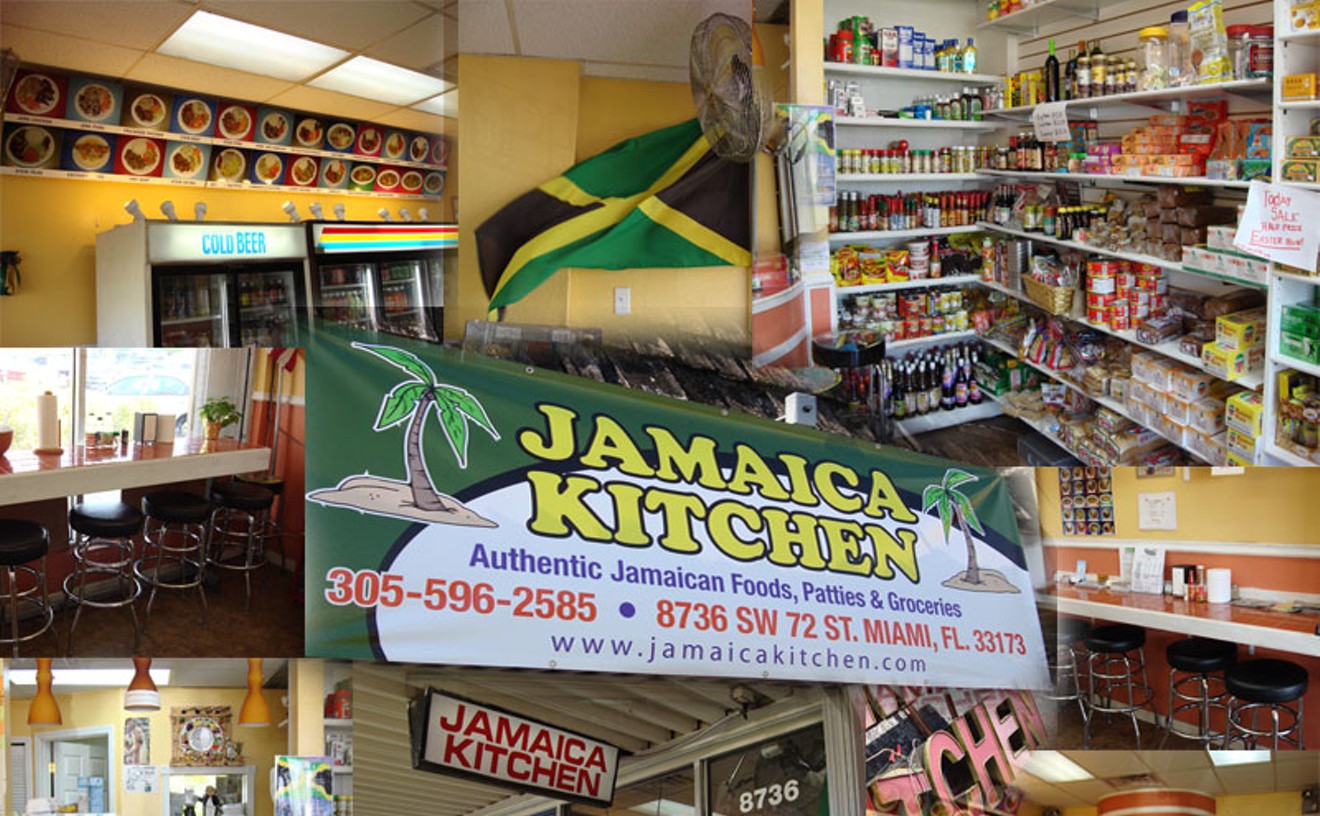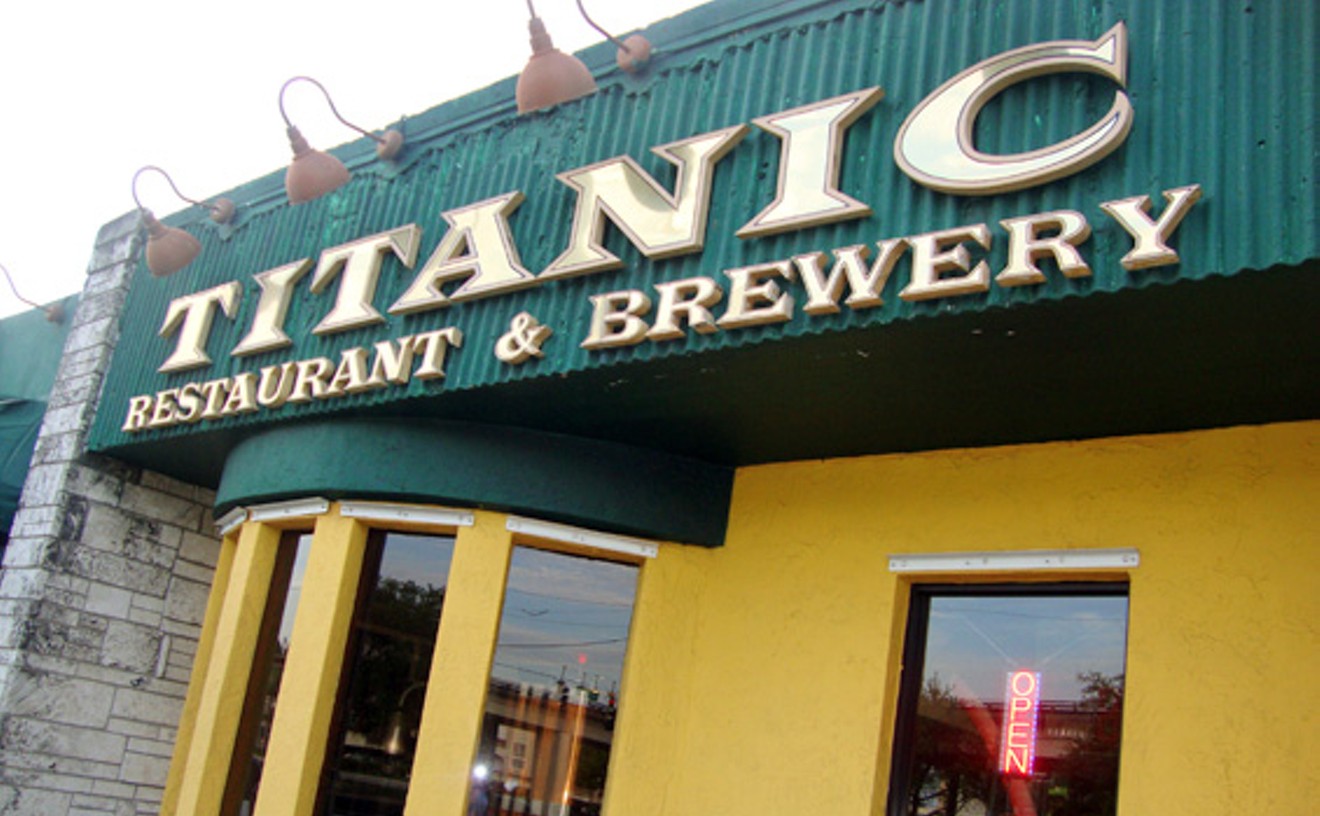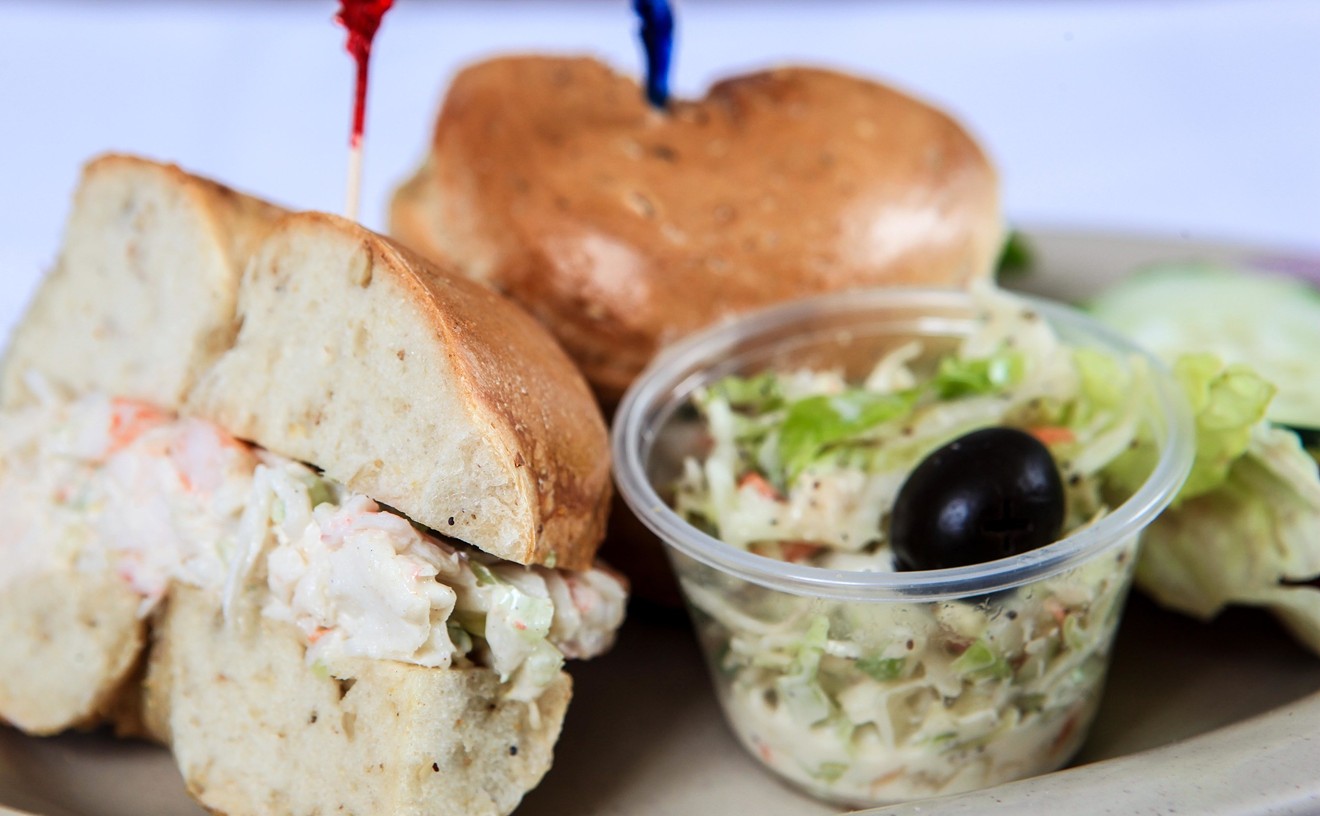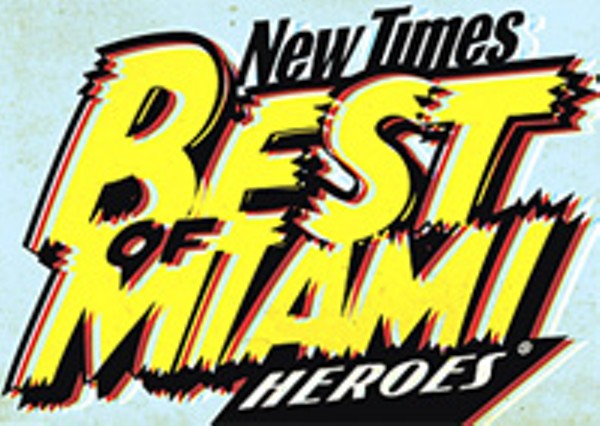Best Bistro
Mama Lila's Bistro
In France, a bistro is a homey (and often family-run) everyday eating/drinking place, serving down-to-earth fare at prices that match. Unfortunately le bistrot has lost a lot more in translation than the final "t." Today's American bistros can be almost anything, including pretentious and pricey. At the three Valderrama sisters' friendly neighborhood place, however, the "bistro" part of the name is as genuine as Mama Lila (their Peruvian grandmother, and inspiration). In the kitchen, head chef Elisa and sous chef Lili turn out honest, eclectic fare that's basically contemporary American, with influences from the Mediterranean, Asia, and Mama L. Standout dishes include jalapeño, chicken, and cheddar soup ($3.95/5.95); and Lila's chicken salad, a succulent, nut-crusted chicken breast sliced on a mix of greens, grapes, and muenster cheese, with a tangy-sweet onion dressing ($9.95). In all dishes, everything is house-made, from the imaginative salad dressings to the luscious mayo on the sandwiches. And you get a lot of food for little money. Out front, sister Rosa's welcome makes everyone feel like regulars, and something from the small but thoughtfully selected and well-priced wine list induces a similar warm glow. French it's not, but a real bistro it is.
Best Smoothie
Pinecrest Wayside Market

This charming roadside stand has fresh fruit and gourmet snacks, but its most faithful customers — kids and parents from Pinecrest Elementary next door, tourists on their way to Fairchild Tropical Garden, commuters from Old Cutler Road — come for the smoothies and shakes. For less than $4 they refresh themselves with icy concoctions in flavors like key lime pie, mango coconut banana, or banana honey. They sit at the plastic tables outside, relaxing in the shade and watching the cars go by. For a brief moment, heat and hassle are eliminated by merely sucking on a straw.
- 10070 Red Rd., Pinecrest, 33156 Map
- 305-661-6717
Best French Restaurant
La Goulue

New Yorkers of all descriptions have been coming to Miami for decades to flee their bitter winters, so why wouldn't big-time Big Apple chef/restaurateurs do it too too? One of the latest such snowbirds is Christian Delouvrier, who has reprised the upscale bistro formula of the original Large Pippin Goulue, in Manhattan, at this outpost at the tony Bal Harbour Shops. While the new location's menu is more limited than that of the original, what Delouvrier does here, he does very well indeed. Of course there's not much a restaurant needs do to oysters on the half-shell, except serve the freshest sweet-briny bivalves possible. Which Goulue does. It also does an elegant foie gras and properly lusty variation on salad Lyonnaise as well as dead-on steak-frites. None of this comes cheap — witness $21 foie and a $32 half-order of risotto — but it's still reason to send our thanks to Old Man Winter.
- 9700 Collins Ave., North Miami Beach, 33154 Map
- 305-865-2181
- www.lagouluebalharbour.com
Best Saketini
Dragon

We love Dragon, the sushi den set off to the side of, but within, China Grill — which we also love. Grab a seat at one of the hammered iridescent stained copper tabletops, or at the giant communal table that sits in the center of the space and seats fourteen, and get set for some very fine sushi. We love the sushi here, and we love China Grill Management, and we love Jeffrey Chodorow, too. But most of all we love the saketinis. The signature spirit, aptly named the Dragon saketini, is made from high quality sake, premium vodka, and freshly brewed green tea ($13). Drinking anything with green tea flavor has the sort of taste that makes you think you are going to live longer, but we would love it even if that wasn't the case. A lemongrass saketini is great, too, sweetened just a trifle with pineapple juice. We love pineapple juice, and the watermelon lychee saketini, and the Sobe saketini, which kicks in with pear liqueur, apple, and watermelon pucker. Not sure what pucker is, but we love watermelon, and did we mention we love Jeffrey Chodorowç We really really do, and we are hoping he loves us as well. Even if he doesn't love us we're hoping he doesn't say bad things about our very nice restaurant reviewer. But we're giving this best of because, in all seriousness, Dragon serves the sassiest saketinis in town. It has nothing to do with fear. Honestly.
- 5902 W. 16th St., Hialeah, 33012 Map
- 305-557-0500
Best Greek Restaurant
Jamaica Kitchen

The five or so authentic Chinese places in town have been done to death. Just Google "Chinese" and "Miami" and the names come up again and again. Lung Gong is authentic. Kon Chau's got dim sum on lock. But which restaurant is most Miami? Jamaica Kitchen — no doubt. Enter its nook of the Sunset West Shopping Center and find yourself in a whirl of homemade soups (made daily), patties, and a curry goat that will make you do a backflip. But something odd about the menu draws you to a totally different place: the pork and hamchoy (a preserved mustard green), the suey mein (a noodle soup featuring a crazy egg roll stuffed with pork and shrimp — $10 per quart). Or perhaps you are drawn to the simple delights of the "Chinese roast chicken." Prices vary from lunch to dinner, fluctuating between about $6 to $9. Sidle up to the long counter; enjoy the friendly banter of the mom and pop owners and the fine island beats playing in the background. Or don't. They've been around for more than 24 years, don't advertise, and have no interest in being reviewed or winning this award. Jah bless them — they know they're the bomb.
- 8736 SW 72nd St., Miami, 33173 Map
- 305-596-2585
- www.jamaicakitchen.com
Best Microbrewed Beer
The Miami Area Society of Homebrewers (MASH)

Miami is not a beer town. There are a few good brewpubs (the Abbey, Titanic) but generally, it's all Corona, pricey Italian piss-water, and domestic swill. As a result, the 50 paunchy members of the town's most beer-hungry citizenry have taken to brewing in their homes. On the third Monday of every month, they hunker down at a long table at the far end of the Titanic to compare brews. Of late, the pub's kindly owner has allowed them access to his equipment for custom batches. Their creations are then proudly poured for just a few days from the bar's hand-pulled cask. Every year hundreds of gallons of Miami-Dade County water are converted to Cuban coffee stouts, coconut wheats, avocado meads, and more. While you choke down $8 Heinekens on the beach, this intrepid band of cranks, weirdoes, and alcoholics of discriminating taste pump rivers of delicious drink out of their garages, closets, and tool sheds. Join them, or be doomed to drink what your distributor wants you to!
- 5813 Ponce de Leon, Coral Gables, 33146 Map
- 305-668-1742
- titanicbrewery.com
Best Bagel
Harriet & Bob's Bagel Cove

Bagel Cove
In New York, a bagel is a bagel. Everywhere else, a bagel is bread. Some say New York City's unique way with bagels has something to do with the water, but if you know where to look you can actually find a decent specimen in the sixth borough, too. Harriet and Bob, a pair of transplanted New Yorkers (go figure), know it's only a bagel if it has the right blend of hardness on the outside and chewiness within. Just follow the flocks of white-haired snowbirds and Q-tip-headed locals who jam the entrance of Harriet & Bob's on the weekends. Grab a table or stand in the to-go line, and order up a toasted sesame with butter ($1.89), an everything with cream cheese ($2.90), or onion with vegetable cream cheese ($4.99). The bustling Bagel Cove, opened by Harriet in 1988 (Bob is her third business partner), also offers everything under the Jewish-delicatessen-style sun — from challah french toast and blintzes to matzoh ball soup and smoked fish — but it's the bagels that'll keep you rolling back. If you're lucky a member of Bob's crew will be toting out a plastic laundry basket filled with a warm, fresh batch. You might even think you're in New York — except you can drink the water.
- 19003 Biscayne Blvd., Aventura, 33180 Map
- 305-935-4029
- bagelcove.com
Best Caribbean Restaurant
The Bahamian Pot Restaurant

A ton of perks come with being the official "gateway to the Americas." Afro-Cuban bands and Brazilian bikinis aside, we are blessed with access to restaurants serving awesome food from exotic locales beyond the home of processed cheese. One such place is the Bahamian Pot, a trip to the Caribbean that doesn't require a passport — just your hungry belly. The menu is overflowing with island favorites like conch chowder, oxtail, plantains, stewed fish, and Johnny Cake; and as an ode to good ol' American eatin', the menu is also home to soul-food staples like fried chicken, pork chop sandwiches, and an awesome lemon cake. The chefs at the Bahamian Pot have perfected the art of just-right spice; never ever bland, yet nothing that will knock your taste buds from your tongue. And since nothing at the Pot is over $15, no matter what you order your wallet will still be as full as your tummy. The entire menu is sublime, but a must-try is the guava duff, a boiled fruit-filled ball of dough, also known as the perfect marriage between Miami and the Caribbean.
- 6301 NW Sixth Ave., Miami, 33150 Map
- 305-759-3408
- www.facebook.com/TheBahamianPot/
Best Croissant
Uva 69

Uva makes its croissants on-site and uses real butter. The result is flaky and airy, best enjoyed with a cafe au lait, while seated in the shade of the outdoor restaurant. Varieties abound: plain ($1.88), chocolate ($2.68), and ham and cheese, spinach and cheese, or almond (also $2.68). If you're not feeling French, they also have guava pastries and apple turnovers ($2.15).
- 6900 Biscayne Blvd., Miami, 33138 Map
- 305-754-9022
- www.uva-69.com
Best Haitian Restaurant
Cliff's Restaurant & Catering
Everyone in this neighborhood knows the Jamaican-born Cliff, who has been cooking up a storm in his ramshackle roadside restaurant since 1986. It's difficult to find anybody around here, in fact, who hasn't sat down at one of the stools lined along a counter and dug into curried shrimp, stew peas, pork chops, cow feet, or other West Indian specialties that Cliff's crew does just right. Lunch specials include any of the aforementioned, with pigeon rice, steamed cabbage, fried plantains, and fruit punch or lemonade — for a downright neighborly sum of $5.50. The same price brings a breakfast of yam, banana dumpling, and callaloo, but we haven't even mentioned the really lip-smacking stuff found at Cliff's: curried goat with a devilish ginger-masala kick, and barbecued and/or jerked chicken and pork ribs that get slow-cooked in a black barbecue smoker outside. Ask for the hotter barbecue sauce, which is perked with piquant Scotch bonnet chilies, and request a Red Stripe Beer to chug along. You are set. Cliff's roots, rocks, and reggaes on weekend nights, when giant speakers gush island music until 3:00 a.m
- 10740 NW 7th Ave., North Miami, 33168 Map
- 305-754-2679





